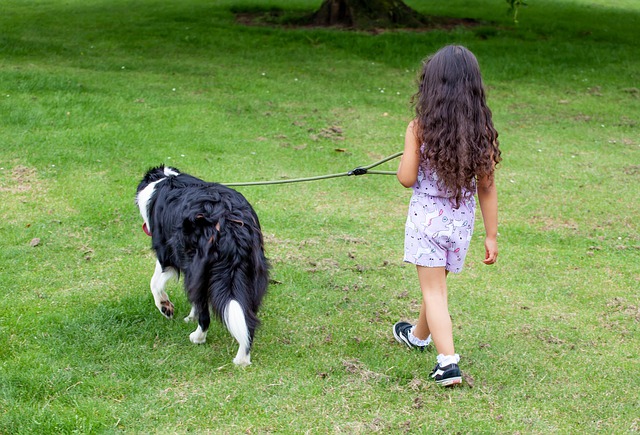Dog Ownership & Mental Health in Children: 3 Ways Canines Develop A Child's Mind
- Written by Mathew Coulton

Should you get a dog when you have children?
It’s a dilemma many parents face. Well, scientific research seems to suggest it’s a good decision.
While the relationship between dogs and kids is something we still don’t understand fully, a recent study suggests that children that grew up with dogs are simply better off, both in terms of physical and mental health.
Today, we talk about 3 great benefits of having a canine companion around.
1. Dogs Help Kids Develop Social Skills
“Canines and humans have been companions for thousands of years, meaning it shouldn’t surprise anyone that children are naturally drawn to dogs. However, dogs are not just fun to play with, they actually help kids develop better relationships with humans too.” - Sharon Elber - Professional Trainer at Gentle Dog Trainers.
A recent study published in the Pediatric Research journal has confirmed that young kids growing up with dogs develop better social and emotional competencies. Among children included in this study, those who came from families with dogs had less behavioural issues and fewer problems with their peers.
2. Dogs Provide Support & Companionship
Dogs provide a sense of companionship and support. In fact, it’s quite common for children to feel misunderstood from time to time, but a dog can always be a source of support and comfort.
Overall feelings of loneliness and signs of depression are less common among dog owners in general, and there is no reason why this shouldn’t be true for kids as well. In fact, the sense of support and companionship a dog can give a child can have some very real benefits for a child’s cognitive development too.
Recent research in the area of human & animal interactions suggests that young children can benefit from reading to dogs. Reading to a canine companion creates a safe environment for the child and makes the task fun. As a result, kids who read to dogs tend to learn faster and perform better.
3. Dogs Teach Responsibility
Learning to take care of another living organism can teach responsibility. If a child learns to take care of a dog, they will also learn how to stay on schedule and be responsible - something that can greatly help them later in life.
This effect can be especially beneficial for children with ADHD.
“A pet can teach a child with ADHD to schedule and plan ahead. Pets require a schedule for feeding, walking, bathing etc. Once your child becomes accustomed to following the pet's schedule, it will be easier for him to follow a schedule for homework, chores or extra-curricular activities.”, says Jeff Hamilton in an article for Psychology Today
It’s not only about responsibility, though. Playing with a dog can also help children get some exercise and get rid of excess energy, thus making them calmer and more focused overall.
Final Thoughts: Is It Good for Kids to Grow Up With a Dog?
Recent scientific research seems to confirm what many families with dogs have known all along: growing up with a dog can be great for your child.
The ways dogs make our lives better are many, and we can start from the simplest one: dog owners simply tend to be more active overall. Getting some exercise and healthy play-time with the dog is always good for a child, and this claim probably doesn’t need a special explanation. Not only this, but having a dog in the family seems to create conditions for children to be healthier overall.
If we focus on mental health and cognitive development specifically, we can see that having a canine companion can help children feel less lonely, develop social and emotional intelligence, and develop greater self-esteem.




